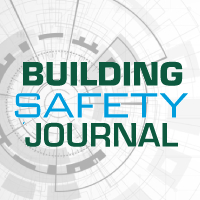
IREC and partners launch project to provide education solutions for building, fire and safety department officials
 Building, fire and safety officials play a critical role in enabling the safe, widespread and rapid deployment of new technologies that make the grid more sustainable and resilient. These include energy storage systems (ESS), electric vehicles (EVs) and grid-interactive energy efficient building technologies. However, these emerging technologies have outpaced codes and existing educational resources, creating an urgent need for up-to-date guidance for this audience.
Building, fire and safety officials play a critical role in enabling the safe, widespread and rapid deployment of new technologies that make the grid more sustainable and resilient. These include energy storage systems (ESS), electric vehicles (EVs) and grid-interactive energy efficient building technologies. However, these emerging technologies have outpaced codes and existing educational resources, creating an urgent need for up-to-date guidance for this audience.
The Interstate Renewable Energy Council (IREC) announced the launch of a three-year, $2.1 million project funded by the U.S. Department of Energy’s Office of Energy Efficiency and Renewable Energy (EERE) to reduce barriers to widespread adoption of distributed energy resources (DERs) by providing education and resources to expand the knowledge of 30,000 safety professionals.
By increasing the familiarity and confidence of these key stakeholders to permit and inspect DERs, the project will reduce barriers to widespread DER deployment. The project will tackle several unique challenges: rapid changes in emerging technology, the evolving needs of those on the front lines of DER adoption, and the ability to cost-effectively reach a nationwide audience.
“Building and safety officials—such as building and electrical inspectors and fire marshals—are critical stakeholders for enabling the safe and efficient installation of clean energy and related technologies,” said Larry Sherwood, President and CEO of IREC. “As these technologies evolve rapidly, it will be imperative that they have access to relevant training and up-to-date resources. This project will make that a reality.”
The project will create one of the most widely-accessed DER information clearinghouse websites to house expert information on clean energy codes, standards, permitting, and inspection. Educational content and resources will be regularly added to this clearinghouse website designed to engage a diverse audience. Concurrently, IREC will develop modular online training for the plan review and inspection of solar PV systems, energy storage systems, and EV charging infrastructure.
The team members that join IREC on this project are experts in their respective areas: International Code Council (ICC); International Association of Electrical Inspectors (IAEI); National Association of State Fire Marshals (NASFM); Pacific Northwest National Laboratory (PNNL); University of Central Florida – FSEC Energy Research Center (UCF-FSEC); Energy Storage Association (ESA); and UL LLC.
Each partner brings the critical perspective of its stakeholders to inform education solutions, as well as broad networks that will allow the team to collectively drive thousands to the website to increase their knowledge of and confidence in DER technologies. This team previously collaborated on a U.S. Department of Energy-funded project to successfully train 15,000 code officials and fire service personnel on solar technologies.
“The Code Council recognizes the essential role energy efficiency and renewable energy strategies play in achieving community and industry level goals,” said Code Council Chief Executive Officer Dominic Sims. “Code officials are key to broad deployment of these solutions. We are pleased to join with IREC to help deliver the resources code officials need to support these technologies and practices.”
“Electrical knowledge and reliable education avenues are essential for electrical inspectors, installers, and designers engaged in today’s fast-growing renewable energy sector,” said IAEI Director of Digital Education Joseph Wages, Jr. “Well trained inspectors and installers reduce the friction that sometimes develops during the installation and inspection of these new technologies ensure safe, code compliant systems.”
“Ensuring Fire Marshals and other safety officials fully understand solar, storage, energy efficiency, and alternative fuels is critical to meeting our mission of protecting human life, property, and the environment from fire and related hazards,” said Jim Narva, NASFM Executive Director. “Partnering with IREC on this grant will foster relationships between all the stakeholders, raising the safety bar for these systems.”
“Providing easy access to educational tools for everything from permitting best practices to potential emergency response in a single repository will be very valuable for authorities having jurisdiction, emergency responders, and system developers,” said Matt Paiss, Energy Storage Safety Advisor at Pacific Northwest National Laboratory. “PNNL sees a great opportunity for this project to fill important knowledge gaps and ultimately accelerate safe installations of renewable energy and storage systems.”
“The clean energy industry is rapidly evolving and requires that those responsible for code enforcement and quality control have access to the most recent technical advances. Training is a core mission of FSEC, and we’re excited to contribute our expertise in solar-plus-storage and alternative fuel vehicles as part of this essential team,” said James Fenton, Director of FSEC Energy Research Center at the University of Central Florida.
The project team was selected as a part of the Educational Materials for Professional Organizations Working on Efficiency and Renewable Energy Developments (EMPOWERED) funding program, a collaborative effort across EERE’s Solar Energy Technologies Office, Building Technologies Office, and Vehicle Technologies Office.
Those interested in receiving email updates about this project can sign up here.








